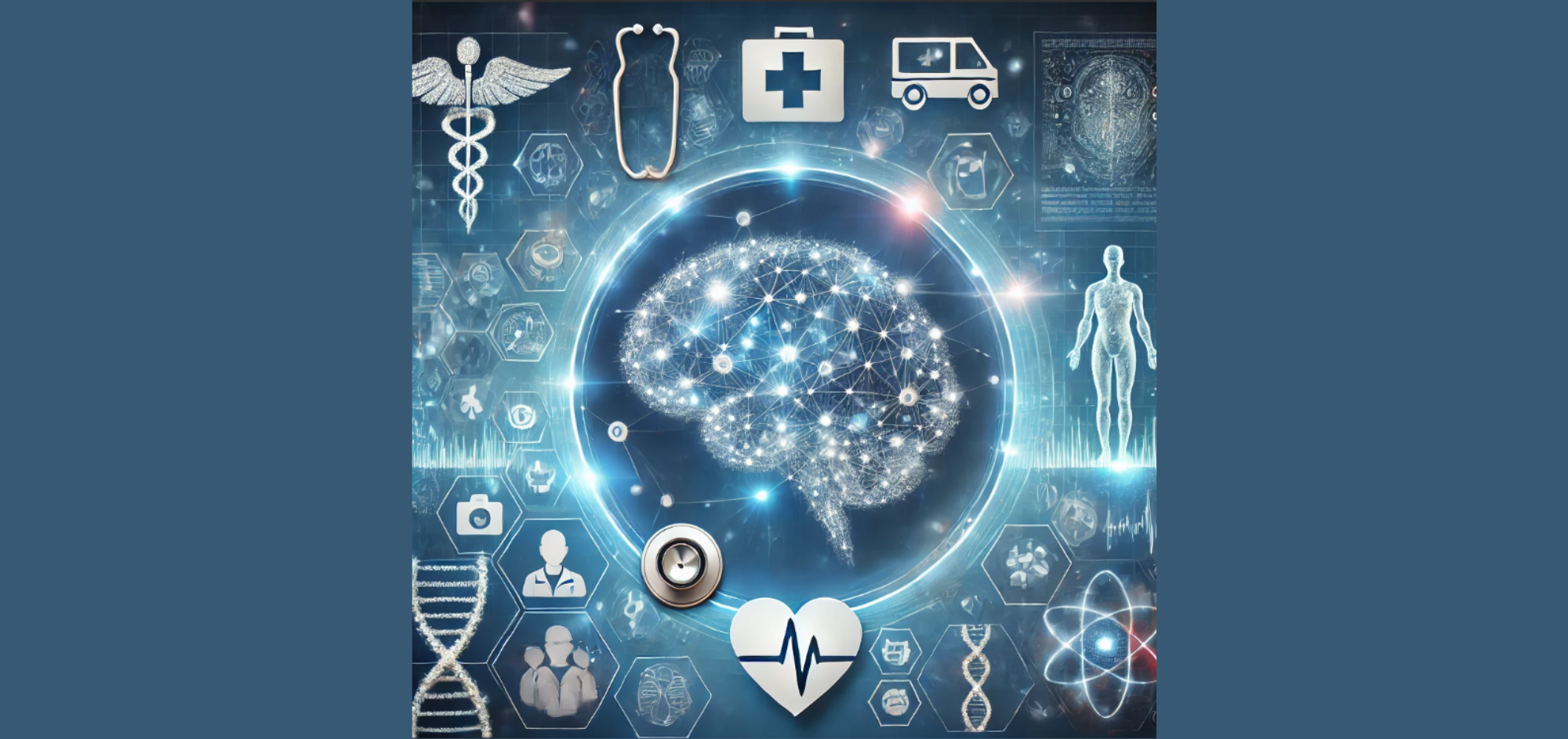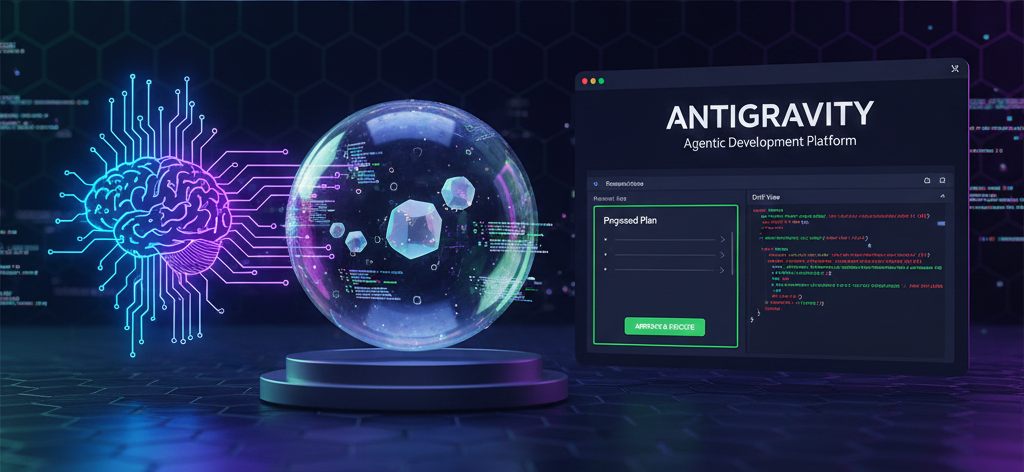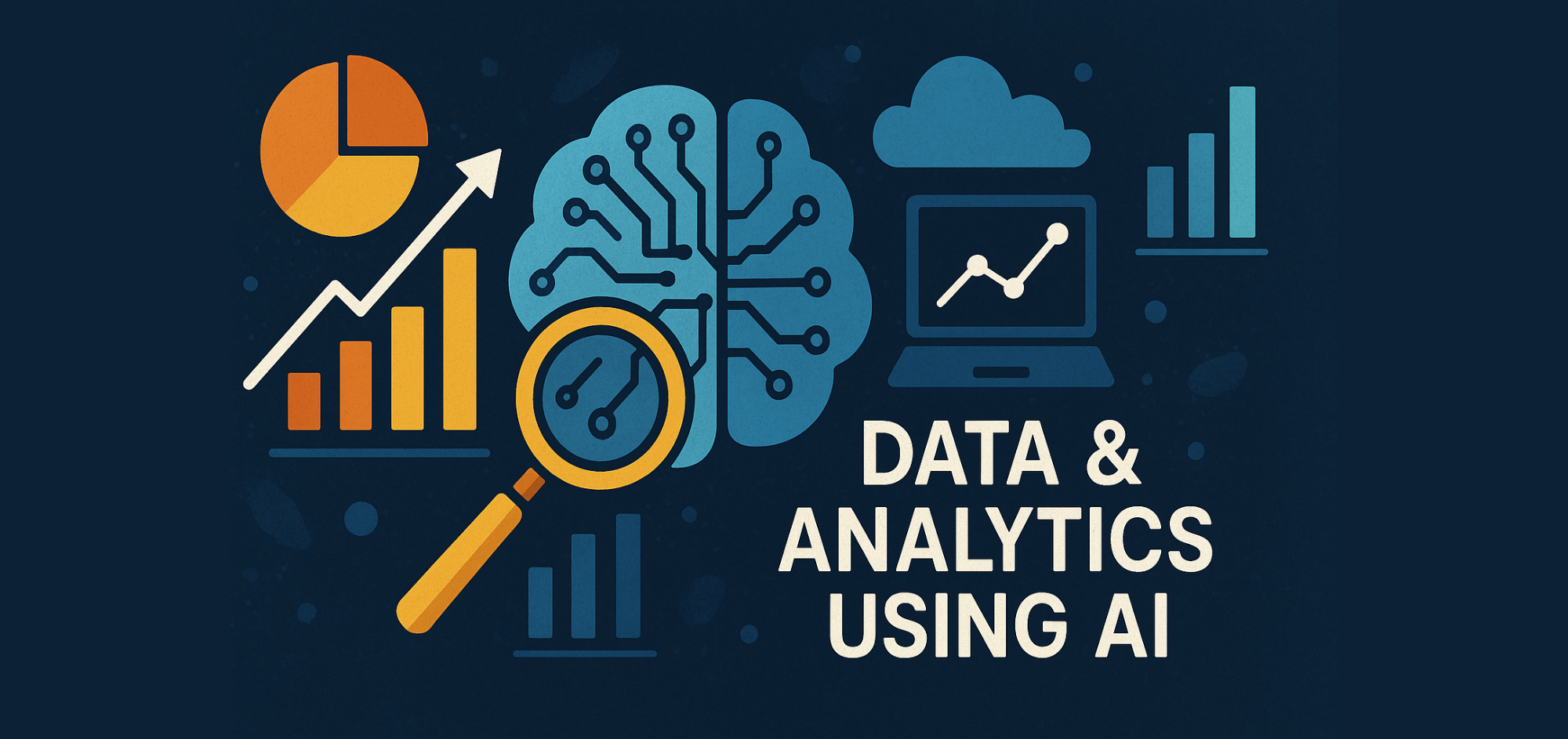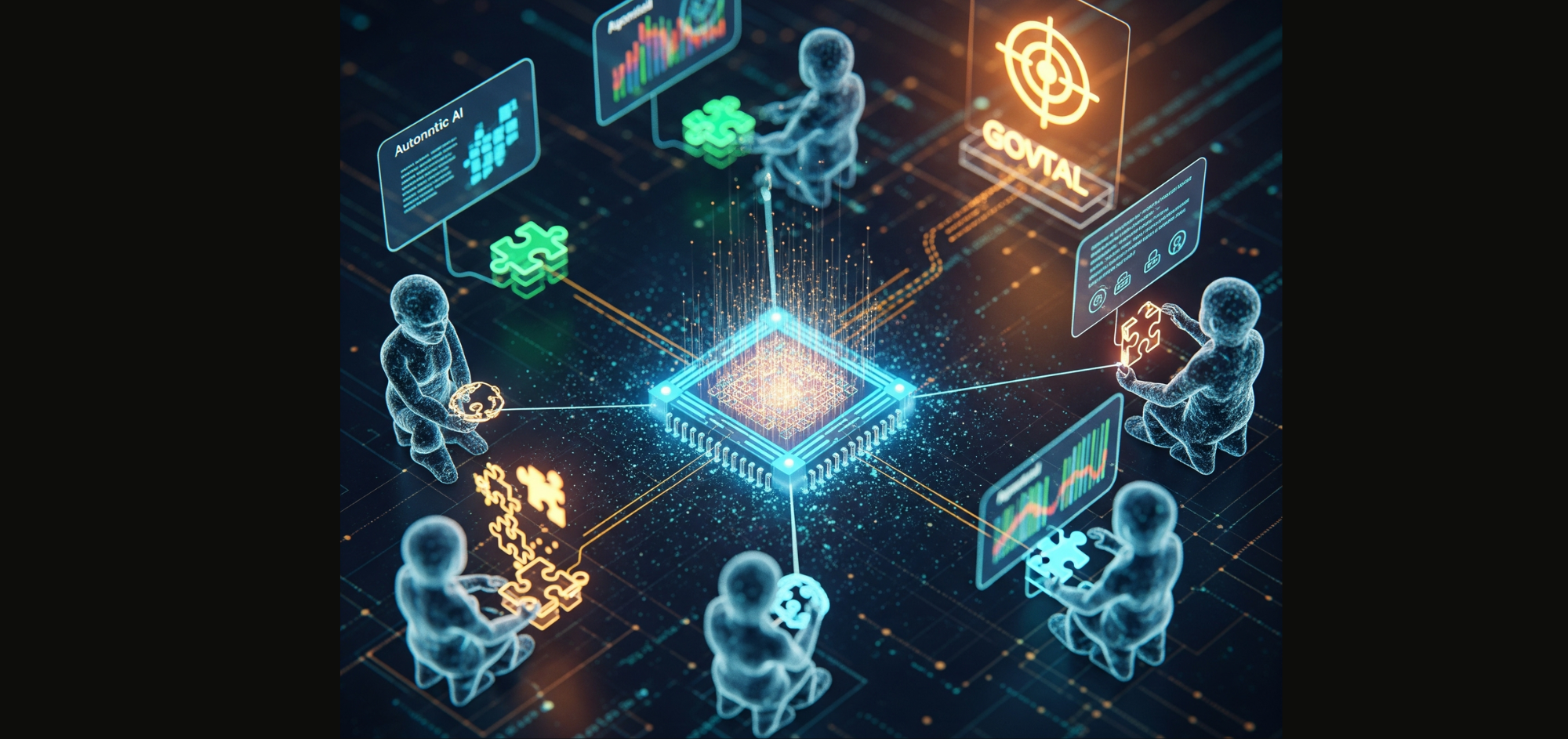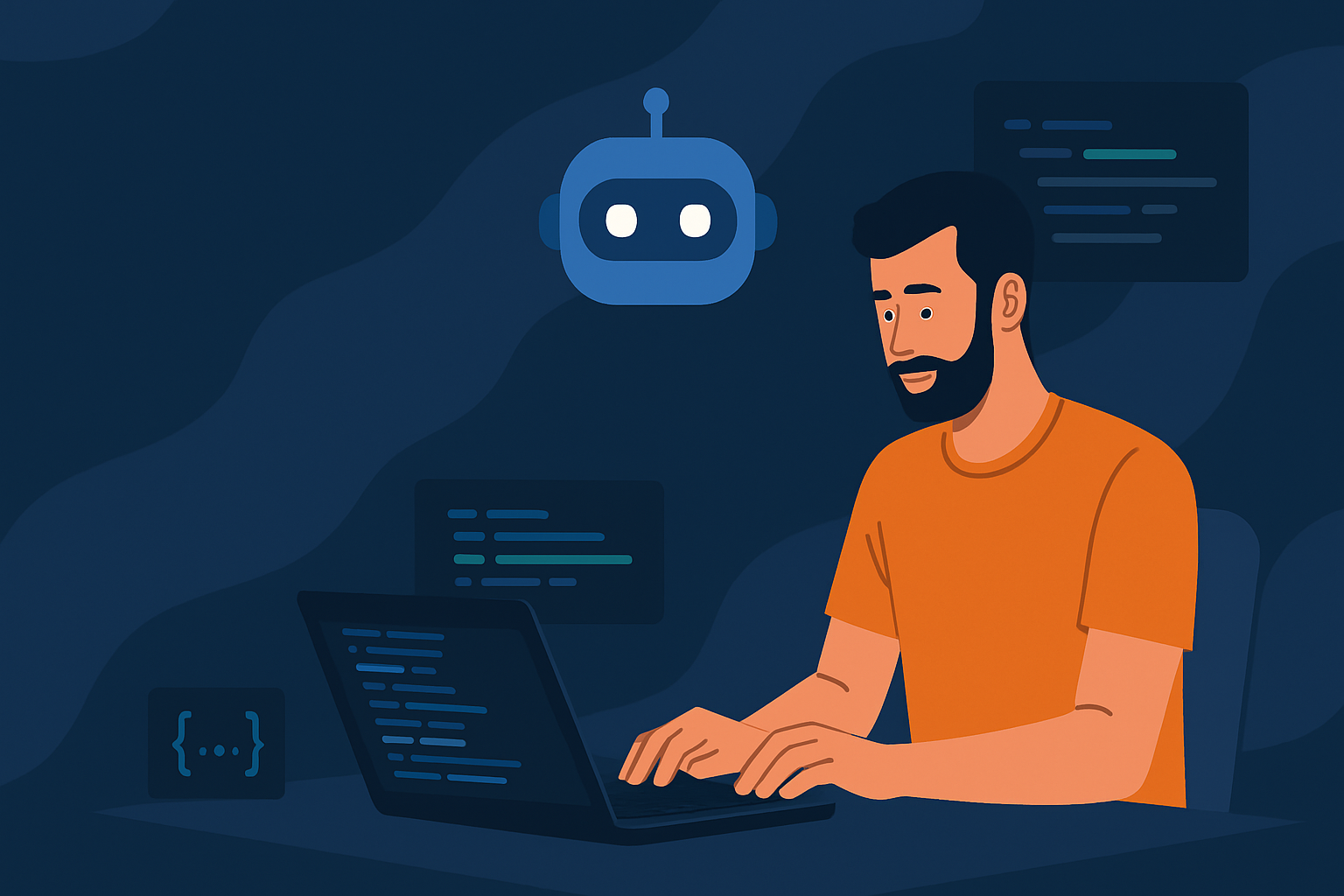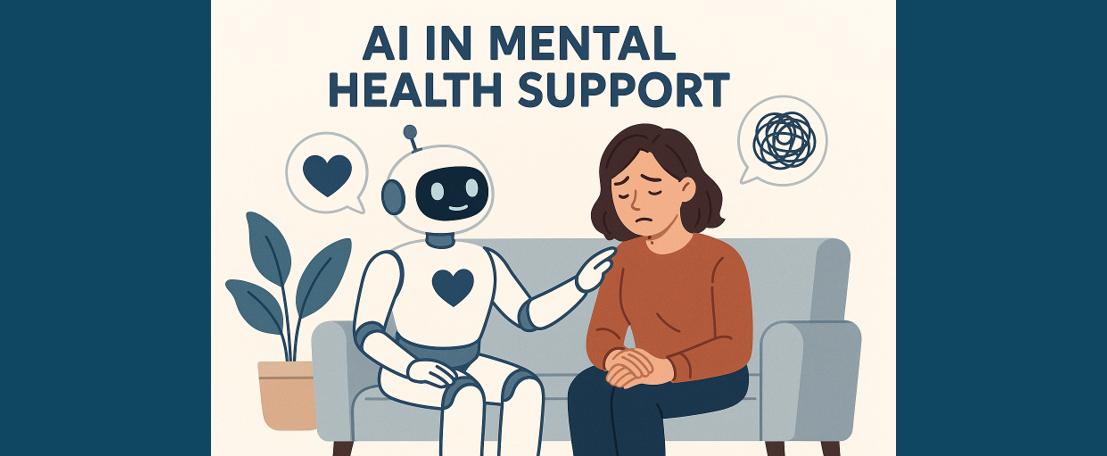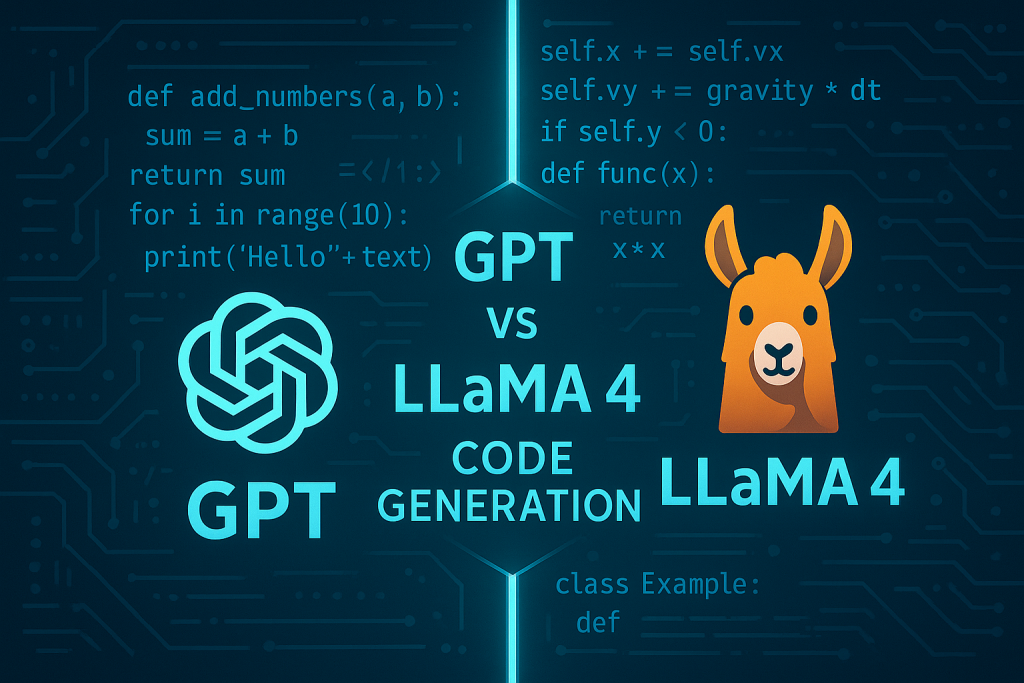The Future of Healthcare
How AI is Transforming Medicine and Improving Lives AI in the Healthcare Domain
Introduction
The rapid integration of Artificial Intelligence (AI) into healthcare is no longer just a futuristic vision — it is happening now and at an extraordinary pace. Healthcare, traditionally rooted in human expertise, is being transformed by AI’s ability to process massive amounts of data, recognise patterns, and provide real-time insights. AI is enabling faster diagnosis, personalised medicine, innovative drug development, and operational efficiency across healthcare systems. This wave of AI transformation is more than just about making systems faster and smarter; it is about reimagining how healthcare is delivered. The shift from theoretical applications to real-world deployments has led to an unprecedented range of solutions in hospitals, research centres, and pharmaceutical companies. AI models now assist doctors in diagnosing complex conditions, optimising drug trials, and personalising treatments based on patients’ genetic profiles. The profound ability of AI to learn and adapt over time through machine learning (ML) and deep learning (DL) algorithms places it at the forefront of global healthcare innovation.
AI in Diagnostics and Imaging
I. Enhancing Cancer Detection
One of the most promising applications of AI in healthcare is in improving cancer detection. Cancer is notoriously difficult to detect in its early stages, but AI has demonstrated remarkable efficacy in augmenting traditional imaging techniques, especially for breast, lung, and prostate cancers. For instance, AI-assisted mammography uses deep learning algorithms to spot subtle signs of breast cancer that human radiologists may miss. Studies show that AI-powered mammograms improve the sensitivity of detecting breast cancer in dense breast tissue, a significant hurdle for traditional methods. A notable example comes from a Google Health AI system trained to interpret mammograms. When tested in clinical settings, the AI outperformed radiologists by detecting breast cancer more accurately via mammograms. Such improvements could significantly boost survival rates in populations where early diagnosis is crucial. Additionally, a recent study on lung cancer detection using AI assistance in chest radiographs found that AI increased the detection rate. This was particularly significant in identifying smaller tumours and detecting early-stage cancers that may have otherwise gone unnoticed. This development further underscores AI’s capacity to enhance human expertise in the critical early stages of diagnosis.
II. Advanced Imaging Analysis
Beyond cancer detection, AI algorithms are proving instrumental in other diagnostic areas, particularly in the analysis of complex medical imaging. Algorithms can now detect abnormalities in CT scans, MRIs, and X-rays far more quickly and with greater precision than previously possible. AI systems like “Chief,” developed by Harvard Medical School, exemplify how deep learning models are used to analyse various tumour types and predict patient outcomes based on tissue patterns. Chief’s accuracy of 94% in predicting outcomes is significantly better than traditional image analysis methods, with some studies showing it outperforms radiologists in specific diagnostic tasks. In lung cancer detection, AI systems have been used to enhance the precision of radiographs by creating heatmaps that indicate suspected cancerous regions. These systems, such as the AI algorithm used in a multi-reader study of lung cancer detection, have improved the early detection of smaller and early-stage cancers by as much as 24% in some cases. Other applications of AI in imaging include the detection of cardiovascular diseases. AI systems can analyse echocardiograms or CT angiograms to detect early signs of heart disease, often finding issues that clinicians might miss during a standard review. The potential for AI to support or even replace certain diagnostic functions in the future is fast becoming a reality.
III. AI in Radiology
Radiology is experiencing a digital transformation as AI models are increasingly deployed to assist radiologists in interpreting medical images. AI systems such as IBM’s Watson Health or Aidoc’s AI-powered tools are used to analyse scans for acute conditions like strokes, pulmonary embolisms, and brain haemorrhages in real time. These tools not only speed up diagnosis but can also triage cases based on urgency, ensuring that critical conditions are addressed faster. What’s particularly promising is the potential of AI to detect conditions that radiologists may not yet be trained to spot, or to recognise patterns in data that are invisible to the human eye. For instance, AI systems are now able to provide visual explanations for their decision-making processes using methods like Grad-CAM, which creates heatmaps showing the regions of an image that contributed to a particular diagnosis. This not only aids radiologists in making more informed decisions but also improves trust in AI-driven diagnoses by making the reasoning behind AI outputs more transparent. With AI, radiology can achieve new heights of precision and efficiency, helping to alleviate overburdened healthcare systems by reducing the need for repetitive tasks. Research has shown that AI-assisted radiology can lead to the early detection of various cancers, cardiovascular issues, and neurological conditions, improving both clinical outcomes and operational workflows.
AI in Drug Discovery and Development
I. Accelerating Drug Discovery
Traditional drug discovery is a lengthy, costly process that can take upwards of a decade to bring a new medication from concept to market. AI is changing that paradigm by significantly reducing the time and cost required to discover new drug candidates. Using AI, pharmaceutical companies can now rapidly screen through vast libraries of chemical compounds to predict which ones are likely to be effective in treating specific diseases. For example, Insilico Medicine’s AI platform designed a new drug for fibrosis within 46 days, demonstrating how fast AI can be in drug development. Additionally, companies like Atomwise and Recursion Pharmaceuticals have developed AI-driven drug discovery platforms capable of simulating drug-target interactions, predicting outcomes in silico (via computer simulations) before a single test is conducted in the lab.
II. Repurposing Existing Drugs
AI’s ability to analyse huge datasets allows researchers to identify new therapeutic uses for existing drugs, a practice known as drug repurposing. One striking example comes from the pandemic, where AI systems analysed millions of molecules and suggested that remdesivir, originally developed for hepatitis C, could be effective in treating COVID-19. AI-driven repurposing has tremendous potential for rare diseases, where there is often insufficient market incentive to develop entirely new drugs. Tools like IBM’s Watson for Drug Discovery utilise AI to search through thousands of medical papers and databases to identify alternative uses for drugs, potentially opening new treatment options for underserved populations.
III. Collaborative Efforts
AI is increasingly seen as a collaborator, not a competitor, for scientists in drug development. Pharmaceutical companies are partnering with AI firms to streamline research and development pipelines. AstraZeneca’s $18 million collaboration with Immunai Inc. is a prime example of how AI models of the immune system are helping refine cancer drug trials. Through such collaborations, AI is providing new insights into immune responses, biomarkers, and personalised therapies, ultimately making the process of finding effective treatments faster and more accurate.
IV. AI in Clinical Trials
One area where AI is making significant inroads is in the optimisation of clinical trials. The design of clinical trials often involves complex variables, including patient recruitment, monitoring, and trial length. AI helps streamline this process by predicting which patients are most likely to respond to a treatment based on their genetic profile, environmental factors, and other data points. This allows for better-targeted trials and reduces the time it takes to get results.
Personalised Medicine and AI
I. Tailored Treatment Plans
Personalised medicine has long been a goal in healthcare, but it is AI that is turning this into a reality. AI-driven systems can analyze individual genetic data alongside environmental and lifestyle factors to create highly personalised treatment plans. For example, IBM Watson Health’s AI model is being used in oncology to recommend personalised cancer treatment protocols, significantly improving patient outcomes by targeting therapies specifically to a patient’s cancer genome. Additionally, AI is being employed in chronic disease management, where patients receive tailored lifestyle and medication recommendations to better manage conditions such as diabetes and hypertension.
II. Digital Twins in Healthcare
One of the more futuristic applications of AI in healthcare is the concept of digital twins. Digital twins are virtual models of patients that simulate how treatments will affect their real-world counterparts. This allows doctors to run simulations on the digital twin before applying the treatment to the actual patient, reducing risk and improving outcomes. This concept is gaining traction in precision surgery, where surgeons use AI-driven digital twins to simulate and plan complex surgeries. AI ensures that every possible complication is considered before a single incision is made, potentially revolutionising surgery.
III. AI in Genomics
AI’s role in genomics is becoming more significant as the volume of genetic data grows. AI algorithms are adept at identifying patterns in vast genomic datasets, which can lead to breakthroughs in understanding the genetic causes of diseases. Startups like Deep Genomics are using AI to predict how genetic mutations will affect cellular processes, which could pave the way for new genetic therapies. By making sense of vast amounts of genetic data, AI is helping to unlock new treatments for genetic disorders, cancers, and other diseases at the molecular level.
AI in Healthcare Operations
I. Administrative Efficiency
The healthcare industry has long struggled with the burdensome paperwork and administrative tasks that take valuable time away from patient care. AI is addressing this by automating routine tasks such as scheduling, billing, and documentation. AI-powered assistants like Suki reduce the amount of time doctors spend on clinical documentation by transcribing and summarising patient notes in real-time. This allows physicians to focus more on their patients, improving both efficiency and care quality. Additionally, AI is being used to optimise resource allocation in hospitals, ensuring that staffing levels are appropriate for patient demand and that operating rooms are utilised efficiently. A recent multimodal AI framework study, leveraging diverse data modalities, showed how AI could predict the length of hospital stays and mortality risks within 48 hours, helping hospital staff manage resources more effectively. This framework combines multiple data types (e.g., imaging, lab results, and patient history) for improved operational decision-making.
II. AI in Hospital Management
Hospitals are increasingly relying on AI to manage everything from supply chain logistics to bed management. Predictive analytics can anticipate surges in patient admissions, allowing hospitals to plan accordingly and avoid overcrowding. AI also helps optimise appointment scheduling by predicting which patients are more likely to need follow-up visits, reducing appointment no-shows. Johns Hopkins University, for example, has developed an AI-based command centre that optimises patient flow through the hospital, significantly reducing wait times in emergency rooms and ensuring critical resources are allocated more efficiently. AI frameworks like the Holistic AI in Medicine (HAIM) have been designed to handle complex multimodal inputs (such as time-series data, text, and medical images), providing hospitals with real-time decision support for managing patient care and predicting patient needs across departments. Moreover, a study focusing on reinforcement learning (RL) applications in healthcare illustrated how AI could enhance hospital resource management by learning from patient admissions data to predict bed occupancy, thus allowing for better allocation of hospital beds and scheduling of non-emergency procedures.
Advanced Research and AI
I. Protein Structure Prediction
AI is playing a pivotal role in biomedical research, particularly in understanding the structure of proteins, which is crucial for drug discovery. AlphaFold, an AI system developed by DeepMind, has made groundbreaking advances in predicting protein structures with remarkable accuracy. Proteins are fundamental to almost all biological processes, and knowing their shape helps researchers understand how they function and how diseases affect them. The ability to predict protein folding patterns not only accelerates the process of drug discovery but also aids in the understanding of complex diseases such as Alzheimer’s and Parkinson’s, where misfolded proteins play a key role. Before the introduction of AlphaFold, determining a protein’s structure was a time-consuming and expensive process involving X-ray crystallography or cryo-electron microscopy. With AI, researchers can now predict protein structures in hours rather than years, drastically cutting down the time required to develop drugs. This is seen as one of the most revolutionary applications of AI in the life sciences, enabling researchers to tackle diseases that have been challenging for decades.
II. AI and Quantum Mechanics in Drug Discovery
Another cutting-edge area where AI is showing immense promise is in its integration with quantum mechanics to further enhance drug discovery. Quantum computing offers the possibility of simulating complex molecular interactions with unprecedented accuracy, but the computations involved are often too vast for even the most advanced supercomputers. AI steps in by optimising these computations, allowing researchers to simulate the behaviour of molecules and predict how they might interact with various drugs at an atomic level. This combination of AI and quantum mechanics is expected to have a transformative impact on fields such as material science, genomics, and personalised medicine. AI-powered quantum simulations are already being used to screen potential drug candidates faster and more efficiently than traditional methods, offering hope for faster treatments for complex diseases such as cancers, autoimmune disorders, and viral infections.
III. AI in Biomedical Research
Biomedical research is another area where AI is proving to be a game-changer. AI systems are capable of processing vast quantities of biological data, helping researchers make sense of complex interactions within the human body. AI is particularly useful in identifying biomarkers — biological molecules that indicate the presence of disease. By analysing data from thousands of patients, AI can help researchers identify patterns that might otherwise go unnoticed. For instance, AI models are being used to analyse data from clinical trials and observational studies to identify genetic or environmental factors associated with diseases such as diabetes, cardiovascular conditions, and neurological disorders. By understanding these factors, AI helps researchers develop targeted therapies that can treat or even prevent these diseases. Another promising use of AI in biomedical research is in the development of new vaccines. AI models can analyse data on virus mutations, human immune responses, and epidemiological trends to predict how effective a vaccine might be against emerging strains of viruses like influenza or COVID-19.
Ethical Considerations and Challenges
As AI continues to transform healthcare, it brings with it a host of ethical challenges that must be carefully addressed to ensure its benefits are equitably distributed and its risks minimized.
I. Addressing Bias in AI Models
One of the most pressing concerns with AI in healthcare is the issue of bias in AI models. AI systems are trained on vast datasets, but if these datasets are not representative of diverse populations, the models may make biased decisions that disproportionately affect certain groups. For example, AI algorithms trained primarily on data from white male patients may not perform as well for women or people of colour, potentially leading to misdiagnoses or unequal treatment. Addressing these biases requires a concerted effort to ensure that AI models are trained on diverse, representative datasets. Healthcare organisations, AI developers, and regulators need to work together to establish guidelines for the collection and use of data to ensure that AI systems deliver equitable healthcare outcomes for all populations.
II. Ensuring AI Explainability
Another key challenge is ensuring that AI models are explainable. Many of the most powerful AI systems, such as deep learning models, operate as “black boxes,” meaning that even their developers cannot always explain why they make certain predictions. In healthcare, this lack of transparency is particularly problematic. Patients and doctors alike need to understand why a particular diagnosis or treatment recommendation was made in order to trust the system and make informed decisions. Explainability is also crucial for regulatory approval. In many countries, healthcare systems and treatments must be approved by regulatory bodies like the FDA in the United States or the EMA in Europe. AI models that are not explainable may struggle to gain approval because regulators cannot fully understand how they work or ensure that they are safe.
III. Data Privacy and Security
The use of AI in healthcare requires access to vast amounts of sensitive patient data, which raises significant concerns about privacy and security. AI systems need to access data from electronic health records, genetic information, medical imaging, and other sources in order to provide accurate diagnoses and treatment recommendations. However, this data is highly personal, and improper handling could lead to breaches of patient confidentiality. Ensuring that patient data is stored securely and used in accordance with privacy regulations such as HIPAA in the United States or the GDPR in Europe is essential to maintaining trust in AI healthcare systems. Moreover, as AI systems become more integrated into healthcare, it will be necessary to develop robust cybersecurity protocols to protect these systems from malicious attacks.
Future Outlook
The future of AI in healthcare is bright, but it will require ongoing investment in research, infrastructure, and education to realise its full potential. AI is already making significant contributions to diagnostics, treatment planning, drug discovery, and hospital operations, but many challenges remain to be addressed before they can be fully integrated into everyday medical practice. One of the most exciting areas of future development is in predictive healthcare. By analysing data from wearable devices, genetic tests, and medical records, AI systems could predict health problems before they even arise, allowing for early intervention and potentially preventing diseases from developing in the first place. This shift towards preventative, personalised medicine could revolutionise healthcare as we know it, leading to longer, healthier lives for people all over the world. Furthermore, as AI continues to evolve, we may see the rise of fully autonomous healthcare systems, where AI handles everything from diagnosis to treatment, with minimal human intervention. While this may seem like science fiction, technology is advancing rapidly, and it is likely that we will see AI systems playing an even more prominent role in healthcare within the next decade. However, for AI to reach its full potential, it is crucial to address the ethical, legal, and regulatory challenges that come with it. Ensuring that AI is used responsibly, fairly, and transparently will be key to ensuring that it delivers on its promise to improve healthcare outcomes for everyone.
Conclusion
AI is already reshaping healthcare in profound ways, and its potential is only just beginning to be realised. From diagnostics to drug discovery, personalised medicine to hospital management, AI is helping to make healthcare more efficient, effective, and accessible. As AI continues to evolve, it will play an even greater role in transforming the healthcare landscape, bringing us closer to a future where personalised, preventative care is the norm, and where healthcare is tailored to the unique needs of each individual patient. Yet, with this promise comes responsibility. Developers, healthcare professionals, and regulators must work together to ensure that AI is used ethically and equitably and that it serves to benefit all people, regardless of their background or circumstances. Only then can AI truly transform healthcare for the better.
References
- McGrath, E. Does Google AI Beat the Doctor at Detection of Breast Cancer? (2024). ezra.com. Available at: https://ezra.com/blog/google-ai-breast-cancer-detection#:~:text=Google's%20Contribution%20to%20AI%20in,the%20USA%20and%20the%20UK.
- Secinaro, S., Calandra, D., Secinaro, A., Muthurangu, V., Biancone, P. AI in radiology: Challenges and opportunities. (2021). BMC Med Inform Decis Making. Available at: https://bmcmedinformdecismak.biomedcentral.com/articles/10.1186/s12911-021-01488-9.
- Insilico Medicine reports positive Phase IIa results for ISM001–055, a novel first-in-class drug treatment for idiopathic pulmonary fibrosis (IPF) designed using generative AI (2024). EurekaAlert.org Available at: https://www.eurekalert.org/news-releases/1058384.
- Suki AI. Available at: https://www.suki.ai/.
- AstraZeneca in AI collaboration with Immunai to inform cancer drug trials (2024). Reuters. Available at: https://www.reuters.com/technology/artificial-intelligence/astrazeneca-ai-collaboration-with-immunai-inform-cancer-drug-trials-2024-09-26/.
- Deep Genomics. Available at: https://www.deepgenomics.com/.
- Tool Developed to Assist with Triage in the Emergency Department (2022). HopkinsMedicine. Available at: https://www.hopkinsmedicine.org/news/articles/2022/11/tool-developed-to-assist-with-triage-in-the-emergency-department.
- Soeksen, L., Ma, Y., Zeng, C., Boussioux, L., et al. Integrated multimodal artificial intelligence framework for healthcare applications (2022). Nature.com. Available at: https://www.nature.com/articles/s41746-022-00689-4.
- AlphaFold 3 predicts the structure and interactions of all of life’s molecules (2024). Google Blog. Available at: https://blog.google/technology/ai/google-deepmind-isomorphic-alphafold-3-ai-model/.
- Fan, Z., Tang, J., Chen, W., Wang, S., Wei, Z., Xi, J., Huang, F., Zhou, J. AI Hospital: Benchmarking Large Language Models in a Multi-agent Medical Interaction Simulator. (2024). arXiv. Available at: https://arxiv.org/abs/2402.09742
- Rafferty, A., Ramaesh, R., Rajan, A. Transparent and Clinically Interpretable AI for Lung Cancer Detection in Chest X-Rays. (2024). arXiv. Available at: https://arxiv.org/abs/2403.19444
- Dankwa-Mullan, I. Health Equity and Ethical Considerations in Using Artificial Intelligence in Public Health and Medicine. (2024). CDC. Available at: https://www.cdc.gov/pcd/issues/2024/24_0245.htm
- Herington, J., McCradden, M., Creel, K., Boellaard, R., et al. Ethical Considerations for Artificial Intelligence in Medical Imaging: Deployment and Governance. (2023). Journal of Nuclear Medicine. Available at: https://jnm.snmjournals.org/content/64/10/1509
- Ethics and governance of artificial intelligence for health. (2021). World Health Organization. Available at: https://www.who.int/publications/i/item/9789240029200
Catch the latest version of this article over on Medium.com. Hit the button below to join our readers there.

